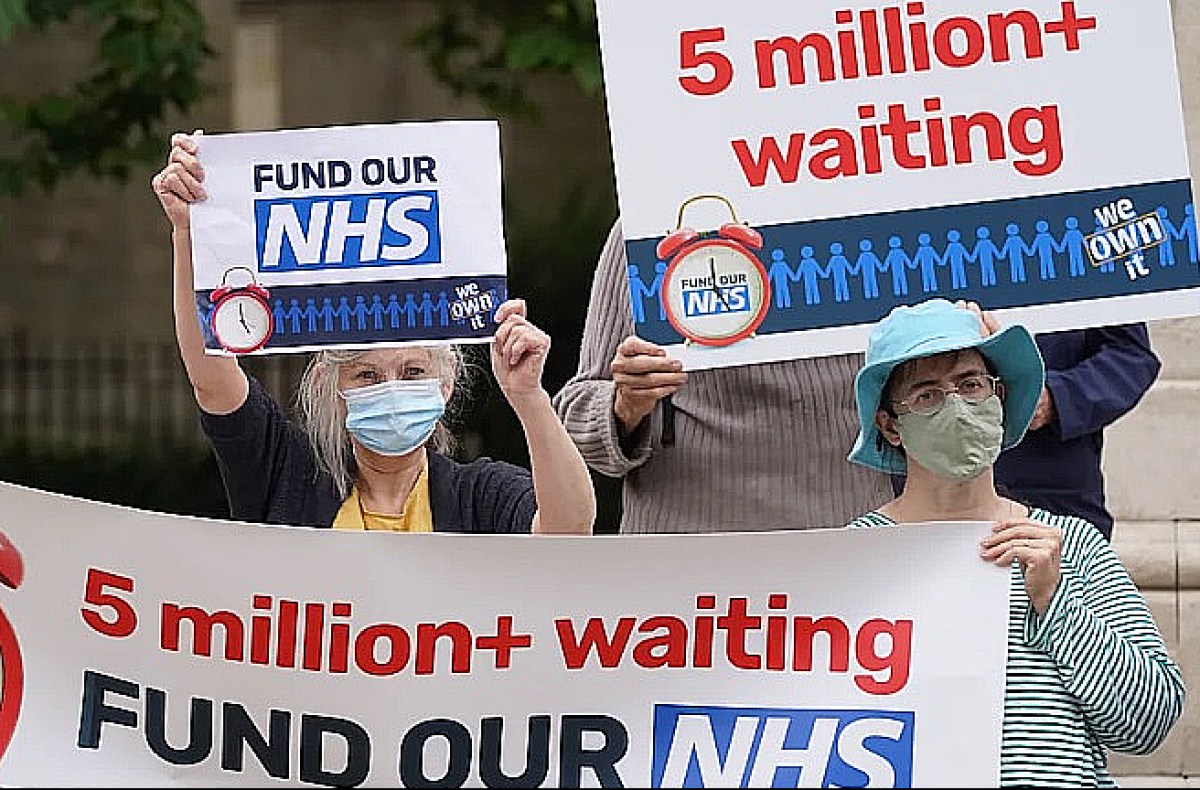 253
253
Since the outbreak of the Ukraine-Russia conflict and the imposition of EU sanctions on Moscow’s oil and gas industries, European nations have faced exponentially rising inflation and a severe energy crisis, with the inflation rate in the Eurozone reaching 10.7%. Germany, France, Italy, the UK, and the Czech Republic are just some countries where the high inflation, deteriorating by the Russian fuel embargo, has prompted massive protests and strikes.
Amid the ongoing political and financial turmoil in the United Kingdom, the Royal College of Nursing (RCN) has announced the early results of a strike vote, stating, “So far, over 300.000 members of this union have voted in favour of an organised strike.” According to the “RNC” leadership, the nationwide nurses’ strike aims to raise salaries 5% more, far less than the UK’s soaring inflation rate of 12.3%. On the other hand, the new British administration at 10 Downing Street has decided to only raise the basic annual salary of nurses by 4%.
The RCN has yet to release formal details about the timing and type of strike, but sources claim that if the vote results are approved, the strikes will undoubtedly begin before Christmas. This will be the first strike by nurses in more than 106 years since the RNC was established.
Meanwhile, the British National Health Service (NHS) administrators have expressed grave concern about the deterioration of the crisis in the country’s hospitals and medical facilities. According to recent survey results, seven million patients in the UK were queuing for hospital treatment by the end of August. Meanwhile, the Junior Doctors’ Committee (JDC) will vote on a strike in early January 2023. Also, the Royal College of Midwives (RCM) will vote on whether to participate in a national strike.
According to the latest surveys, there are seven million patients currently on the waiting list. 387,257 patients have been waiting for treatment for over a year. Tens of thousands of patients have been waiting for treatment for more than 18 months, and since 2021 alone, 117,000 individuals have passed away while awaiting treatment.
To exacerbate the already challenging situation for the embattled British Prime Minister, Rishi Sunak, in recent days, tens of thousands of Britons of all ages and backgrounds have taken to the streets to demonstrate against the unprecedented rising cost of living and to call for early parliamentary elections.
In the past several weeks, scandal after scandal has shed light on the already deplorable state of inpatient mental health care. For instance, a thorough investigation of the NHS-administered psychiatric hospital Centre in Edenfield, Manchester, divulged that staff members insulted, mistreated, and assaulted vulnerable patients.
A clandestine study also discovered that patients in Essex were treated inhumanely, despite repeated suicide cases between 2004 and 2015, which the victims’ families poignantly reported.
Over the past several weeks, over twenty teenagers claimed to have been mistreated in the private Huntercombe Group, which specialises in Child and Adolescent Mental Health Services.
In addition, a probe into a Middlesbrough hospital disclosed that three females attempted suicide after being badly abused.
Similar tragedies occur regularly across the UK: excessive use of solitary confinement, which can lead to violent behaviour within the medical care centers; applying arbitrary and punitive measures against patients; inadequate awareness of the symptoms of anorexia, nonsuicidal self-injury (NSSI), and autism; as well as an utter lack of sympathy and attention regarding patients prone to suicide attempts.
Comment
Post a comment for this article